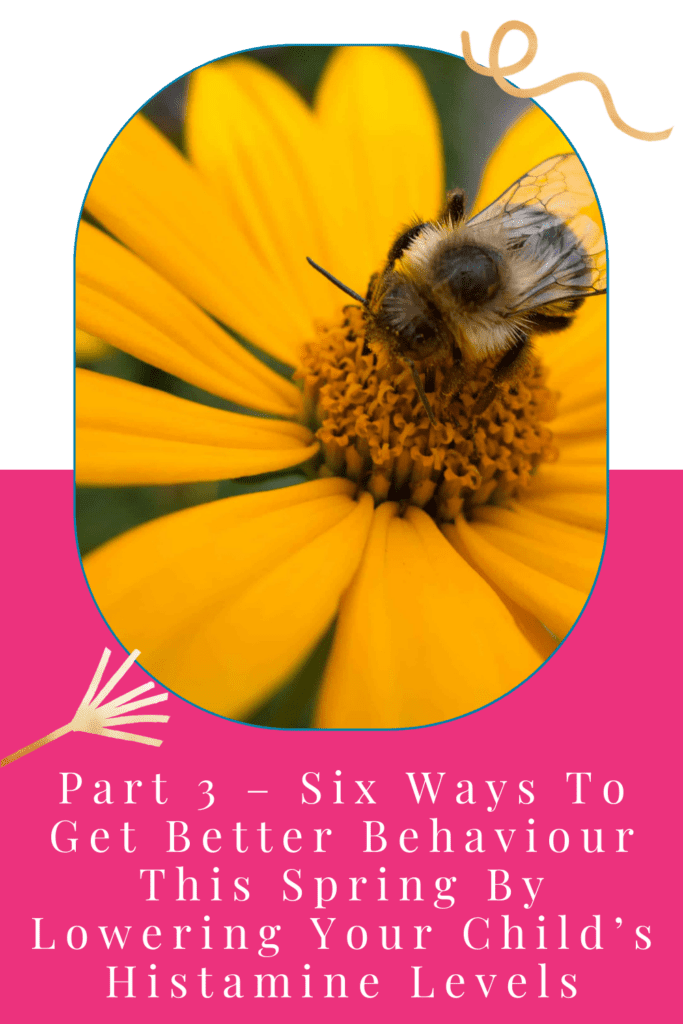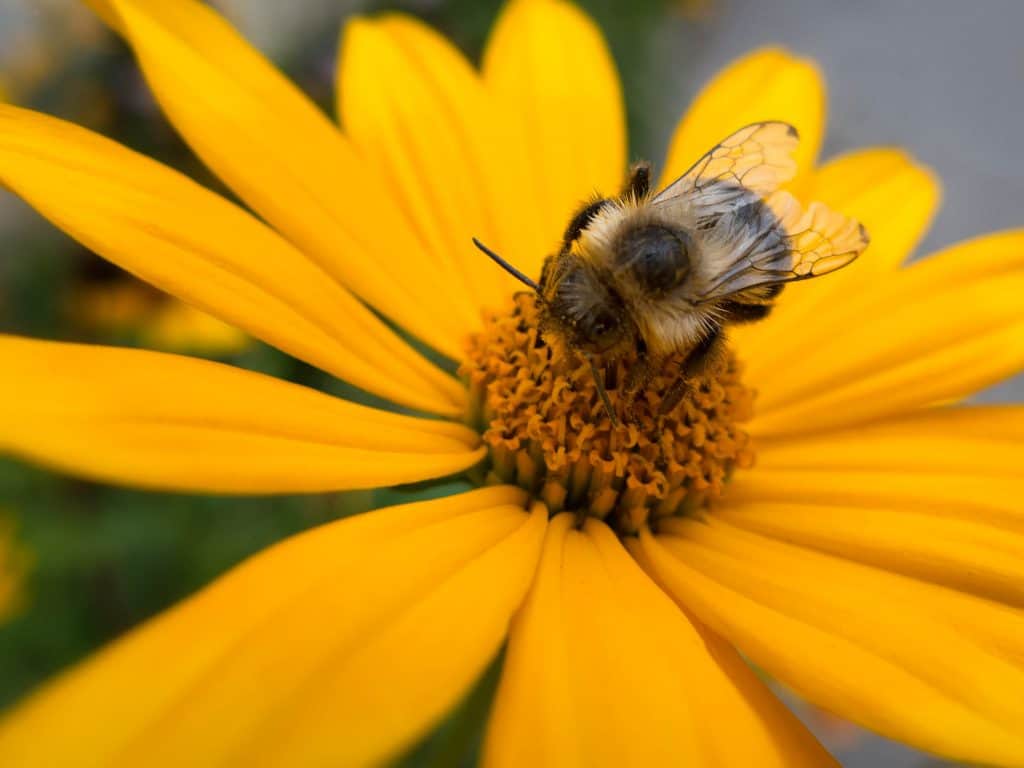Are anti-histamines the new Ritalin? If you ask the mom of a boy I was working with last week she would say “yes!” Spring had caused her son to regress; everything was worse from hyperactivity, to tics to aggression. She saw my video on YouTube and tried the antihistamine test and sure enough her son’s behaviour changed dramatically.
In my last two posts I talked about why children with ADHD and ASD can have a worsening of behaviour in the spring. Today I am going to dive right into what you can do to lower your child’s histamine levels to get better behaviour, focus along with less tics, stimming, aggression and OCD both during the spring and the rest of the year.
While a trial with anti-histamines can help you determine if histamines are driving some of your child’s behaviour, you don’t want to depend on them. Research has shown that depending on anti-histamines actually aggravates the problem over time, making anti-histamines more and more ineffective while producing all sorts of unwanted side effects from the medication.
Lowering histamine naturally by addressing why this is happening in the first place is key. I mentioned before my daughter had terrible issues with histamine, but now that we have healed her gut and addressed the root cause for high histamine–she no longer needs to do any of the stuff I’m going to outline to help you also heal high histamine in your child.
1) Healing the Gut: I mentioned previously that healing the gut is the first place I start when histamine issues are present with clients. The first step is to starve out the bad bacteria that releases excess histamine and causes the immune cells to deregulate. Many ADHD and ASD kids respond well to a diet that is lower in sugar and complex carbs, but this does not necessarily mean keto. Keto can be healing for some children, but not all.
Simply start with reducing carbs by limiting grains as this helps to starve out an overgrowth of bad bacteria and then consume more protein, fats and healthy detoxifying vegetables like your greens. Adding in bone broth or L-glutamine helps to heal the gut lining which is often permeable and inflamed in children with ADHD and ASD. Healing the gut lining calms down the immune response and results in lowered histamine and inflammation in the brain–and that means better behaviour.
Limit ferments. What?! Yes. Everyone is crazy about ferments these days and for good reason. However, fermented foods are high in histamine if they have not been fermenting for long enough–which is often the case in health food stores. Unless you’re making your own ferments and they have fermented for several months, the histamine levels will be through the roof.
Ferments are definitely full of good bacteria and don’t usually have to be avoided forever for most people. Once the gut is healed, you can add ferments in slowly and gradually increase.
To crowd out the bad bacteria, have your child take a probiotic like GutPro which does not have any bacterial strains that are high in histamines. There are certain strains of probiotics that help to degrade histamine like A. Infantis, B longum, and L plantarum. Avoid probiotics that can raise histamine levels like l casei, l reuteri and l bulgaricus.
2) Low Histamine Diet – When histamine is an ongoing issue adopting a low histamine diet temporarily can provide immense relief. I did this with my daughter for three months and the diet seemed to really help to reset her histamine levels. There are tons of websites and books on what a low histamine diet looks like such as avoiding ferments and leftovers as well as certain foods like tomatoes, cheeses, eggplant, certain fish and leftovers.
Food does not have to sit for very long before the histamine levels skyrocket. Meat in particular. The easiest way to do this is to simply eat fresh food and freeze anything else until you’re ready to eat it.
Make sure you’re not just starving out the bad bacteria but also creating a nutrient rich diet is important because as I mentioned previously there are several nutrients that are crucial for the body to be able to manufacture the enzyme that breaks down histamine DAO and HNMT. Those nutrients are Zinc, B12, magnesium, vitamin C and several B vitamins.
3) Stabilize the Cells that Release Histamine – Diet can certainly help with addressing the root cause of excess histamine and creating better behaviour all year but going the extra step to stabilizing the mast cells during allergy season to prevent excess histamine release is often necessary.
My favourite supplements to stabilize mast cells are quercetin, DAO, nettle and L-theanine. These supplements are also great because they help to curb the problem if it’s connected to a genetic predisposition like low production of DAO. Other favourite supplements that break down histamine, reduce inflammation and detoxify are curcumin from turmeric, holy basil, green tea extract, digestive enzymes and 1000mg of vitamin C a day.
4)Histamine Lowering Vegetable – Unless you have had genetic testing done, don’t assume the enzyme DAO cannot be increased naturally with a healthy diet and by healing the gut. Bottom line is that you can’t out supplement a poor nutrition. You just won’t see the results you’re hoping for. Water cress is a vegetable that can reduce histamine by 60% –so hide that in smoothies, salads and under your child’s pillow–or maybe not. It might be going too far.
5) Local Honey – This is also another amazing super food for seasonal allergies. The more local the better because then you’re inoculating yourself with the pollen from the plants that grow around you. Find a beekeeper as close to your home as possible and have your child take 1tbsp a day to inoculate them against seasonal allergens. Of course this should be used in moderation and avoided if you’re trying to tackle stubborn candida or yeast overgrowth.
5) Water – Water is always underestimated despite its value. Drinking plenty of fresh water is important to flush excess histamine from the cells and to eliminate it from the body. Dehydration can actually contribute to histamine issues.
6)Manage Stress Levels – Whether it’s you or your child, cortisol (the stress hormone) triggers the release of histamine. We often don’t think of our children as stressed but many children who are struggling with learning and behaviour are under an incredible amount of stress. Getting lots of rest, trying to keep things calm at home, a guided meditation or mindfulness practice and even supporting the adrenals with adrenal cortex can all make a difference.


